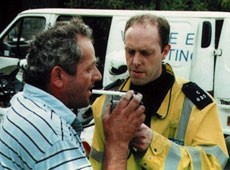Politicians slammed as 'anti-alcohol public health zealots' over manifesto proposals

The All Party Parliamentary Group on Alcohol Misuse admits “not everyone will agree” with its plans to tackle alcohol misuse. The group, which consists of peers and MPs, claims it wants to “inform and continue the debate on alcohol now and in the future” with 10 key measures for political parties to commit to.
We asked key figures in the pub sector for their reactions:
Introducing public health as a fifth licensing objective
Paul Chase, alcohol policy commentator and author of Culture Wars and Moral Panic: the Story of Alcohol and Society, said: “In Scotland, this has proved ineffective as a means of reducing alcohol-related harms. The idea that premises or personal licence holders can function as public health practitioners is nonsense.
“The real purpose of this proposal is to enable anti-alcohol public health zealots to use local alcohol-related hospital admission statistics to object to new premises licence applications. Reducing the availability of alcohol is one of the stated objectives of the public health lobby, because they believe that it is the availability of alcohol that causes people to drink it. What reducing availability means in practise is closing licensed premises and preventing any new ones from opening wherever possible.”
Neil Williams, of the British Beer & Pub Association, also disagreed with the proposal. He said: “We need a period of stability in licensing legislation as we have seen constant change, with at least 13 major changes since 2005, such as the Mandatory Code, Late Night Levy/EMROs, ADZs, TENs, and others. We’d like to see the focus more on delivering solutions through partnership working; there are many local solutions which are having a real impact on creating safe drinking areas and tackling alcohol-related crime and anti-social behaviour.”
Andy Grimsey, solicitor at Poppleston Allen, said: “Why should pubs and bars be the guardians of the nation’s health? In a heavily regulated and overwhelmingly responsible sector, the added burden of countering public health objections would add another tier of cost, bureaucracy and delay to obtaining a licence. Local processes for data collection on alcohol harm and misuse are too generic to give any one applicant a fair hearing — how do you disprove statistics?
“Even if such data capture processes were refined to be more specific to individual premises, I am not convinced the effect would be any different. For example, if ambulance crews routinely started noting the pub or bar at which someone was found heavily inebriated and needing A&E, this data still wouldn’t show where that person drank all their alcohol or in what quantities.”
Reduce the blood alcohol limit for driving in England and Wales to 50mg/100ml, starting with drivers under the age of 21
Chase said: “Serious injuries and deaths from drink-driving are falling. In 2012, the most recent year for which we have statistics, the number of people seriously injured in drink-drive accidents fell by 6%. Fatalities have fallen to their lowest level since detailed recording began. Between 1979 and 2012, drink-drive deaths fell by 85% — from 1,640 to 230. Obviously even one such death is one too many, but it is hard to see the justification for reducing the limit still further given this evidence.”
Dave Nichols, spokesman for road safety charity Brake, welcomed the call as “hundreds of people die every year at the hands of someone who got behind the wheel after consuming alcohol”. He added: “Evidence clearly shows that even small amounts of alcohol affect your ability to drive safely and that is why we would urge the committee to go one step further and join our calls to get the Government to introduce a zero-tolerance drink drive limit of 20mg per 100ml of blood.”
A Department for Transport spokesman said there were currently no plans to alter the drink-drive limit but said tackling drink driving was “a priority”.
Strengthening regulation of alcohol marketing to protect children and young people
Sarah Hanratty, deputy chief executive of alcohol responsibility body, The Portman Group, said: “The Code of Practice regulates alcohol sponsorships of sports, music and cultural events and was created in consultation with, and is supported by, the leading rights holders. The code requires drinks producers to promote responsible drinking through their sponsorship agreements.
“Alcohol sponsorship of events in the UK makes a significant contribution to the country’s vibrant and diverse economy, and provides essential support allowing investment in grassroots programmes nationwide.”
Speaking about the proposals in general the Association of Licensed Multiple Retailers’ strategic affairs director Kate Nicholls said the group had failed to recognise the progress made by the trade.
She said: “Many of these recommendations are being addressed in partnership with the trade and if Britons are bingeing then they are bingeing on sobriety. Against every measure — not just self-reported behaviour — consumption is down and the sales data is clear and unequivocal.”
The All Party Parliamentary Group on Alcohol Misuse proposals in full
1. Make reducing alcohol harms the responsibility of a single Government minister with
clear accountability
2. Introduce a minimum unit price for alcoholic drinks
3. Introduce public health as a fifth licensing objective, enabling local authorities to make licensing decisions based on local population health need and the density of existing outlets
4. Strengthen alcohol marketing to protect children and young people
5. Increase funding for treatment and raise access levels from 6% to 15% of problem drinkers
6. Commissioners should prioritise the delivery of Identification and Brief Advice
7. Include a health warning on all alcohol labels and deliver a Government-funded national public awareness campaign on alcohol-related health issues
8. For all social workers, midwives and healthcare professionals, introduce mandatory training on parental substance misuse, foetal alcohol syndrome disorder and alcohol-related domestic violence
9. Reduce the blood alcohol limit for driving in England and Wales to 50mg/100ml, starting with drivers under the age of 21
10. Introduce the widespread use of sobriety orders to break the cycle of alcohol and crime, anti-social behaviour and domestic violence







